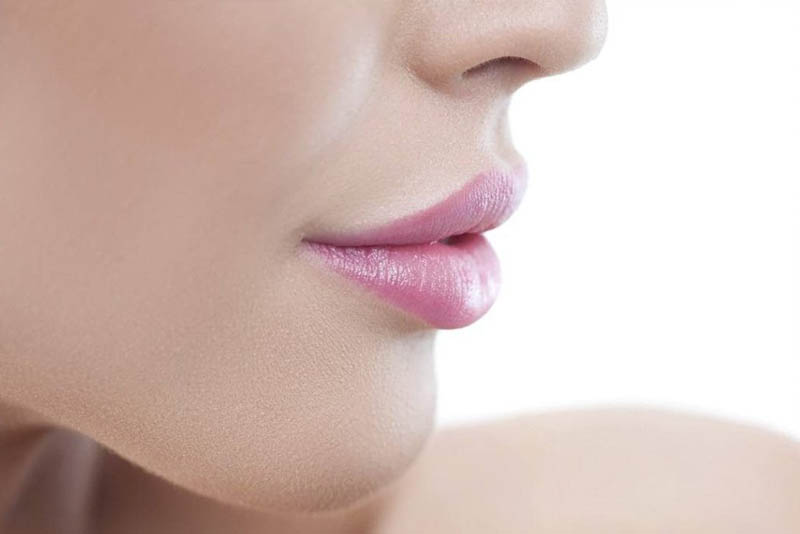Managing Seasonal Allergies Effectively with Help from an Allergy Center
Seasonal allergies—also known as hay fever or allergic rhinitis—can be a major disruption in daily life. Sneezing, congestion, itchy eyes, and fatigue can make it difficult to work, sleep, or enjoy the outdoors. The good news? With expert help from a specialized allergy center, these symptoms can be managed effectively and even prevented.
Seasonal allergies occur when your immune system overreacts to airborne allergens such as pollen, mold spores, and grass. These substances are harmless to most people but trigger an immune response in allergic individuals, leading to symptoms that range from mild to severe.
The Role of an Allergy Center in Seasonal Allergy Relief
A certified allergy center plays a crucial role in diagnosing the root cause of seasonal symptoms and developing a targeted treatment plan. While many rely on over-the-counter medications, they often only provide temporary relief. In contrast, an allergy center focuses on long-term solutions tailored to your specific allergens and lifestyle.
Benefits of Visiting an Allergy Center:
- Accurate identification of seasonal triggers
- Personalized treatment options
- Access to immunotherapy (allergy shots or tablets)
- Preventive strategies for peak allergy seasons
- Ongoing support and monitoring
By addressing the root of the allergy rather than just the symptoms, a professional allergy center offers long-term relief and a better quality of life.
Common Seasonal Allergens
To manage seasonal allergies effectively, it’s essential to understand what you’re reacting to. The most common seasonal allergens include:
- Tree pollen – prevalent in early spring
- Grass pollen – spikes in late spring and early summer
- Weed pollen – typically high in late summer and fall
- Mold spores – thrive in damp environments year-round but peak in spring and fall
These allergens vary by region and weather patterns, which is why working with a local allergy center is especially beneficial.
Signs You Should Visit an Allergy Center
Many people try to self-treat seasonal allergies with limited success. If any of the following apply to you, it may be time to seek expert care:
- Symptoms persist for more than a few weeks
- Over-the-counter medications are not effective
- You experience fatigue, headaches, or sleep disruption
- Symptoms are interfering with daily life or work
- You’re unsure which allergens are triggering your symptoms
An allergy center provides comprehensive evaluations and testing to uncover exactly what’s causing your symptoms.
Diagnostic Tools at an Allergy Center
1. Skin Prick Testing
A small amount of allergen is introduced to your skin via a gentle prick. If you’re allergic, you’ll develop a small raised bump. This test offers immediate results and is effective for most seasonal allergens.
2. Blood Testing
For those who cannot undergo skin testing, a blood test can measure your immune system’s response to various allergens by checking for specific antibodies.
3. Nasal Endoscopy (in some cases)
When symptoms are complex, providers may use a small scope to examine the nasal passages. This helps rule out other conditions like polyps or chronic infections.
These diagnostic tools allow the allergy center team to create a detailed allergy profile and design a custom treatment plan.
Treatment Options for Seasonal Allergies
Once your allergens are identified, treatment can begin. Options often include a mix of environmental control, medications, and long-term therapies.
1. Environmental Management
Reducing exposure to allergens is the first line of defense. An allergy center will educate you on ways to manage your environment, including:
- Keeping windows closed during high pollen days
- Using HEPA filters in HVAC systems
- Showering and changing clothes after time outdoors
- Avoiding lawn mowing or outdoor chores during peak pollen hours
2. Medications
Depending on your symptoms, a provider may recommend:
- Antihistamines – to reduce sneezing, itching, and runny nose
- Nasal corticosteroids – to reduce inflammation and congestion
- Decongestants – for short-term relief of nasal stuffiness
- Eye drops – for itchy, watery eyes
Medications can be prescribed based on your allergy profile and severity.
3. Immunotherapy
For long-term relief, allergy centers offer immunotherapy in the form of allergy shots or sublingual tablets. This approach desensitizes your immune system by gradually introducing small amounts of allergens.
Benefits of Immunotherapy:
- Reduces dependency on medications
- Prevents new allergies from developing
- May reduce asthma symptoms
- Offers long-term control of allergy symptoms
It typically takes several months to start seeing significant results, but for many, the benefits are life-changing.
Seasonal Allergy Management for Children
Children are particularly sensitive to seasonal allergens, and early intervention is key. An allergy center provides pediatric-friendly testing and treatments, helping young patients breathe easier, sleep better, and stay active.
Parents receive guidance on how to minimize allergen exposure at home and school, and long-term options like immunotherapy can prevent symptoms from worsening over time.
Allergy Care for Adults and Seniors
Adults and seniors often downplay seasonal allergy symptoms, assuming they are minor or untreatable. However, allergies can contribute to fatigue, sinus infections, and even worsen existing conditions like asthma or COPD.
An allergy center customizes care for older adults by accounting for other health conditions and medications. This ensures safe, effective allergy management at any age.
Natural and Holistic Allergy Relief Strategies
In addition to clinical treatments, many allergy centers support a holistic approach to care. These can include:
- Saline nasal rinses – to flush out allergens and reduce nasal irritation
- Dietary recommendations – including anti-inflammatory foods that may reduce allergic response
- Supplements – such as quercetin or vitamin C, which have natural antihistamine effects
- Acupuncture or herbal support – when appropriate and used in conjunction with conventional care
Always consult with your provider before starting any new remedies, especially if you’re on allergy medications.
Allergy Forecasting and Technology
Modern allergy centers often use technology to help patients stay ahead of their symptoms. Mobile apps and email alerts can provide daily pollen counts, mold reports, and weather data to help you plan your day accordingly.
This proactive approach allows patients to manage allergies before symptoms even begin.
Lifestyle Adjustments That Make a Difference
Seasonal allergy management often involves small daily habits that collectively make a big impact:
- Wear sunglasses and hats outdoors to keep pollen out of your eyes and hair
- Wash bedding weekly in hot water
- Avoid outdoor exercise during peak pollen times
- Use allergen-proof covers for mattresses and pillows
- Keep indoor humidity between 30–50% to reduce mold growth
These practical changes, combined with care from a qualified allergy center, help keep symptoms in check.
FAQs About Seasonal Allergy Management
Q1: Can seasonal allergies start later in life?
Yes. It’s common for adults to develop allergies in their 30s, 40s, or even later.
Q2: Do I need to get tested every year?
Not usually. However, if your symptoms change or worsen, retesting may be recommended.
Q3: Can allergies be cured?
While allergies cannot be “cured,” they can be effectively managed. Immunotherapy offers the closest path to long-term symptom relief.
Q4: Are allergy shots safe for children?
Yes. Allergy shots are safe for children over the age of 5 and are often very effective in managing symptoms.
Q5: Will moving to a new location help my allergies?
It depends. Some people find relief in new climates, but others may develop new allergies over time. Testing is the best way to understand your risks.
Conclusion
Seasonal allergies don’t have to control your life. With expert support from a certified allergy center, you can identify triggers, manage symptoms, and enjoy the seasons again. From accurate testing to personalized treatment plans and preventive strategies, professional care makes all the difference.
Whether you’re a parent, a busy professional, or a senior dealing with new symptoms, help is available. Don’t settle for temporary fixes—get the long-term allergy relief you deserve with guidance from a trusted allergy center.













